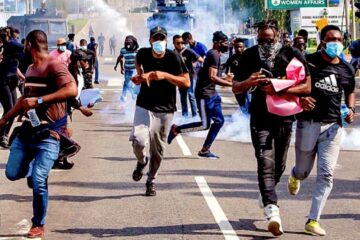
In light of the increasingly distressing situation in the eastern Democratic Republic of the Congo’s (DRC) North Kivu province, UNICEF is urgently appealing for an amplified financial commitment to address the spiraling incidents of sexual violence inflicted upon women and children. This region, heavily riddled with armed conflict and widespread unrest in recent months, has seen a disturbing surge in gender-based violence (GBV).
It is noteworthy that the region has been grappling with a marked escalation in GBV against women and children, according to data from the GBV coordination group for North Kivu. The numbers tell a horrifying tale: there was a 37 percent increase in reported cases in the initial three months of this year, compared to the same duration the previous year.
The year 2022 saw over 38,000 GBV incidents reported in North Kivu, a staggering figure in itself. A majority of these survivors shared horrifying narratives of brutal attacks by armed and displaced men within and in proximity to the camps where they sought shelter and safety.
“The places that should have been sanctuaries have instead morphed into sites of relentless abuse and torment for children and women who are already deeply traumatized,” commented Grant Leaity, UNICEF’s Representative in DRC.
The surge in cases of sexual exploitation involving children is truly horrific, with reports indicating victims as young as three. “This stark reality should stun, sicken, and incite every one of us to act decisively,” stated Mr. Leaity.
Since the outbreak of violence in March 2022, over 1.16 million individuals have been displaced due to ongoing clashes between conflicting parties in North Kivu. Almost 60 percent of those displaced are residing in overcrowded shelters and temporary sites on the outskirts of Goma, the provincial capital, where the threats of sexual violence are extraordinarily high.
Furthermore, UNICEF has noted extensive levels of sexual exploitation at over 1,000 sites within and around the displacement camps. The physical and psychological consequences for the survivors, primarily women, and girls, are catastrophic and enduring. An estimated one in four survivors requires specialized medical and psychological assistance, as per the GBV coordination group.
In response to the crisis, UNICEF has amplified its efforts to prevent and address these atrocities. The agency is providing critical medical and psychosocial services to the affected women and girls in the four largest displacement camps near Goma.
In a collaborative effort with the Provincial Division of Social Affairs and Heal Africa, UNICEF has also set up safe spaces within these camps. In these spaces, professional psychologists, social workers, and trained community-based para-social workers can identify, care for, and refer survivors for additional necessary services.
Yet, given the scale of the crisis, more needs to be done. UNICEF is urgently calling for a massive expansion of services to prevent and respond to sexual violence in and around the displacement camps. The agency is also appealing to donors for further direct aid to those stranded in displacement camps.
In closing, Mr. Leaity appealed to all relevant parties, saying, “We call on the government, local authorities, partners, and donors to take all necessary actions to end this situation immediately, to shut down known sites of sexual exploitation, and to protect women and girls who have already been victims of displacement.”


















